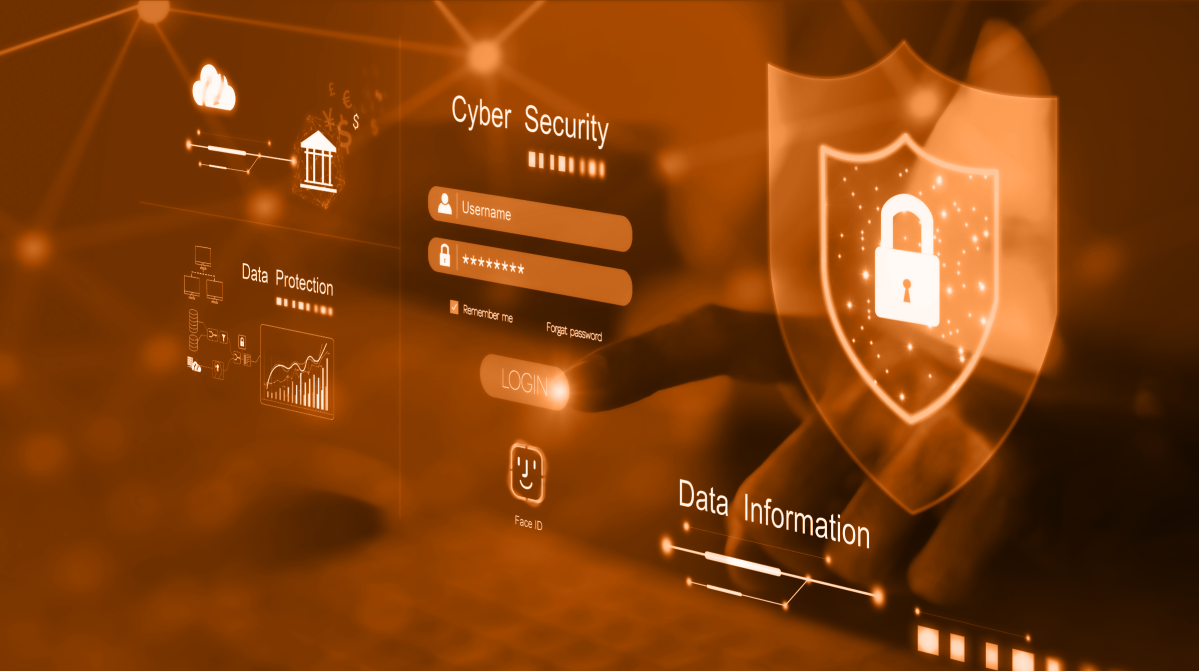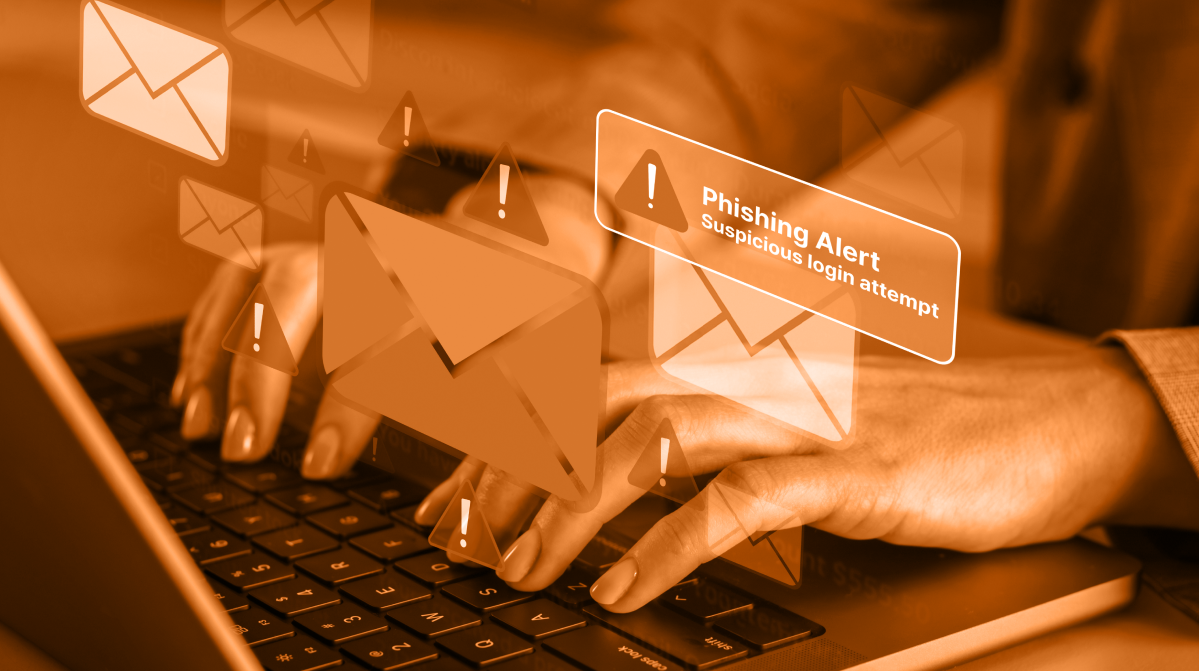In the ever-evolving business landscape, the importance of cybersecurity has become paramount for modern enterprises. As Benjamin Franklin wisely stated, "An ounce of prevention is worth a pound of cure."
This sentiment holds true especially in the realm of cyber security threats, where prevention through regular security audits can be the difference between a thriving enterprise and one that faces insurmountable challenges. As we delve deeper into this topic, we'll explore the reasons why these audits are not just beneficial, but essential, bridging the gap between technological advancement and security assurance.
What is a Security Audit?
In the realm of cybersecurity, a security audit stands as a systematic, measured assessment of how well an organization's information systems protect its assets. This involves evaluating the systems to ensure that necessary precautions are in place, and that they are effective against potential threats. At its core, a security audit aims to identify vulnerabilities and weaknesses, offering insights into areas that require attention or improvement.
There are various types of security audits, each tailored to specific needs and scenarios:
- Internal Audits: These are conducted by members of the organization to assess internal security measures. They provide a first-hand look at the existing protocols and can be instrumental in identifying areas of improvement from within.
- External Audits: External professionals or third-party agencies undertake these. Their primary advantage is the fresh, unbiased perspective they bring, often pinpointing vulnerabilities that internal teams might overlook.
- Specialized Audits: These are tailored for specific areas of concern, such as network security, application security, or compliance with particular regulations. They delve deep into niche areas, ensuring that every facet of an organization's security posture is robust and up-to-date.
In essence, a security audit is not merely a checkmark on a to-do list. It's a comprehensive review that ensures an organization's digital assets remain safeguarded in an age where cyber threats are increasingly sophisticated and relentless. By understanding the nuances of different audits and their significance, enterprises can better equip themselves against potential cyber adversaries.
The Growing Threat Landscape
According to various reports, cyberattacks have become more frequent, sophisticated, and damaging. The consequences of these breaches are not just limited to financial losses but extend to reputational damage, loss of customer trust, and potential legal implications.
To provide a clearer picture, let's delve into three notable cybersecurity breaches that occurred at the enterprise level between 2018 and 2023:
- Marriott International (2018): One of the largest hotel chains in the world, Marriott International, disclosed a massive data breach that affected approximately 500 million guests. The breach exposed sensitive information, including names, passport numbers, and, in some cases, encrypted credit card details. The breach was attributed to unauthorized access within its Starwood reservation system, which had been ongoing since 2014.
- Capital One (2019): Financial giant Capital One faced a significant breach where a former employee exploited a misconfigured web application firewall, gaining access to the data of over 100 million customers. The exposed data included names, addresses, credit scores, and other financial details.
- SolarWinds (2020): In a sophisticated supply chain attack, malicious actors compromised the software update mechanism of SolarWinds' Orion product. This breach affected numerous government agencies and private organizations, leading to the exposure of sensitive data and raising concerns about national security.
These incidents underscore the importance of robust cybersecurity measures and the dire consequences of lapses in security protocols. As cyber adversaries become more adept, the onus is on enterprises to stay one step ahead, making regular security audits an indispensable part of their cybersecurity strategy.
Benefits of Regular Security Audits
In today's digital age, where cyber threats loom large, regular security audits have emerged as a cornerstone of an effective cybersecurity strategy. These audits serve as a proactive measure, allowing organizations to stay ahead of potential threats and vulnerabilities.
Let's delve into the multifaceted benefits that regular security audits offer to modern enterprises:
Risk Identification and Management:
- Early Detection: Regular audits help in identifying vulnerabilities in the system before they can be exploited by malicious actors.
- Prioritization: By assessing the potential impact of each vulnerability, organizations can prioritize their mitigation efforts, focusing on the most critical risks first.
Regulatory Compliance:
- Meeting Standards: Many industries have specific regulations and standards related to cybersecurity. Regular audits ensure that organizations remain compliant, avoiding potential legal repercussions.
- Avoiding Penalties: Non-compliance can lead to hefty fines and penalties. Through audits, organizations can ensure they meet all regulatory requirements, thus avoiding these financial pitfalls.
Stakeholder Trust:
- Building Confidence: When stakeholders, be it clients, partners, or employees, know that an organization prioritizes security, it fosters a sense of trust and confidence in the enterprise.
- Enhancing Reputation: In an era where data breaches can severely tarnish a company's image, regular security audits can bolster an organization's reputation, showcasing its commitment to cybersecurity.
Operational Efficiency:
- Streamlined Processes: Audits often lead to the identification of redundant or outdated security protocols. By addressing these, organizations can streamline their operations, leading to increased efficiency.
- Cost Savings: By identifying and mitigating potential threats early on, organizations can avoid the significant costs associated with data breaches, including downtime, data recovery, and legal fees.
Regular security audits are not just a protective measure but a strategic tool that offers tangible benefits to organizations. They provide a clear roadmap for enhancing cybersecurity measures, ensuring that enterprises remain resilient in the face of evolving cyber threats.
The Cost of Neglect
While the benefits of proactive security measures are vast, the repercussions of neglecting this crucial aspect can be dire. The cost of neglect in cybersecurity transcends mere financial implications and delves into deeper realms of trust, reputation, and operational continuity.
Let's explore the multifaceted consequences of neglecting regular security audits and the overarching importance of cybersecurity:
Financial Implications:
- Immediate Costs: Data breaches often come with immediate financial burdens, including fines, legal fees, and costs associated with damage control.
- Long-term Financial Strain: Beyond the immediate costs, organizations may face lost business opportunities, decreased stock value, and increased insurance premiums.
Reputational Damage:
- Loss of Trust: A single security breach can erode years of built trust among stakeholders, clients, and partners.
- Brand Image: In today's digital age, news of data breaches spreads rapidly, potentially tarnishing an organization's image and making recovery a long and arduous process.
Operational Disruptions:
- Downtime: Cyberattacks can lead to system outages, disrupting regular business operations and leading to significant revenue losses.
- Loss of Intellectual Property: Breaches can result in the loss of proprietary information, giving competitors an undue advantage.
Legal and Regulatory Consequences:
- Legal Battles: Organizations may face lawsuits from affected parties, leading to prolonged legal battles and associated costs.
- Regulatory Penalties: Non-compliance with industry-specific regulations can result in hefty fines and penalties.
Loss of Competitive Edge:
- Stagnation: Organizations that neglect cybersecurity may find themselves lagging in adopting new technologies due to potential vulnerabilities, leading to stagnation.
- Client Attrition: Clients may opt for competitors with a better cybersecurity track record, leading to decreased market share.
While the benefits of robust cybersecurity measures are evident, the cost of neglect serves as a stark reminder of the importance of being proactive. In an era where cyber threats are relentless and evolving, the price of complacency can be monumental, making regular security audits and a robust cybersecurity strategy non-negotiable for modern enterprises.
How Frequently Should Enterprises Conduct Security Audits?
The frequency of security audits is a topic of considerable debate among cybersecurity professionals. While the overarching consensus is that regular audits are indispensable, the exact frequency can vary based on several factors. Determining the right cadence for security audits is crucial for ensuring that an organization's cybersecurity posture remains robust and up-to-date. Let's delve into the factors that influence the frequency of these audits:
Nature of the Business:
- High-risk Sectors: Enterprises operating in sectors like finance, healthcare, or defense, where sensitive data is routinely handled, may require more frequent audits.
- E-commerce and Online Platforms: Businesses with a significant online presence or those that handle online transactions might consider more regular audits due to the dynamic nature of online threats.
Regulatory Requirements:
- Mandatory Audits: Some industries have regulatory mandates that dictate the frequency of security audits.
- Compliance Deadlines: Meeting compliance deadlines might necessitate audits at specific intervals.
Previous Security Incidents:
- Post-breach Analysis: Organizations that have recently experienced a breach or security incident should conduct immediate and then regular follow-up audits to ensure vulnerabilities are addressed.
- Recurring Threats: If an enterprise faces recurring threats or attempted breaches, this could indicate the need for more frequent audits.
Technological Changes:
- System Overhauls: Significant changes to IT infrastructure, such as migrating to a new platform or implementing a new software system, warrant a security audit.
- Adoption of New Technologies: Introducing new technologies or tools into the business ecosystem can introduce new vulnerabilities, necessitating an audit.
External Factors:
- Global Threat Landscape: In times when global cyber threats surge, such as after the discovery of a widespread vulnerability or malware, it's prudent to conduct an audit.
- Geopolitical Events: Events like international conflicts or tensions can lead to increased cyber threats, prompting organizations to reassess their security posture.
While a one-size-fits-all approach doesn't apply to the frequency of security audits, a general recommendation is for enterprises to conduct comprehensive security audits at least annually. However, periodic checks and mini-audits, especially post significant changes or events, can further bolster an organization's cybersecurity defenses.
The key is to remain vigilant, adaptive, and proactive in the ever-evolving landscape of cyber threats.
Conclusion
In the dynamic realm of modern business, where technological advancements offer both opportunities and challenges, the importance of cybersecurity cannot be overstated.
Regular security audits emerge as a beacon of proactive defense, illuminating vulnerabilities and guiding enterprises towards robust security postures. As we've traversed the multifaceted landscape of cyber threats, the benefits of these audits, and the dire consequences of neglect, one truth remains evident: in an age of relentless cyber adversaries, regular security audits are not a mere recommendation but an imperative.
For modern enterprises aiming to thrive in this digital era, prioritizing these audits is not just about safeguarding data but about preserving trust, reputation, and ultimately, their future.



